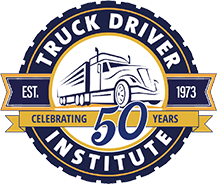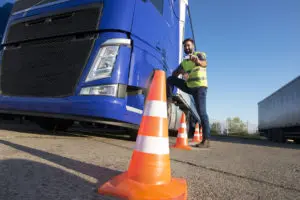What Is the Future of Truck Driving?
There’s a lot of talk surrounding the truck driving industry these days. The coronavirus pandemic has highlighted truck driving as one of the most essential industries in the nation, and Americans around the country are taking time to thank drivers for the great work they’ve been doing. Just plug #ThankATrucker into Twitter and you see hundreds of examples of gratitude! Along with that realization, people have also been asking the question, “What is the future of truck driving?”

This question has come up in part because of the pandemic and the hot topics of automation and electrification. Tech disruptors have been searching for ways to usher these changes into our everyday lives. To name a few key players, think of companies like Tesla, Waymo, GM Cruise, Argo AI, and Aurora.
But do truck drivers in this generation need to worry about losing their jobs to driverless trucks? Furthermore, what new technologies do we see today, and what technologies can we expect to see in the immediate future?
This article takes a hard look and what is the future of truck driving by answering the above questions.
How Close Are Self Driving Trucks?
Of course, the first thing we have to mention when answering the question, “What is the future of truck driving?” is driverless technology. Autonomous vehicles mean taking drivers out of the driver’s seat and turning industries like truck driving on its head.
We’ve already seen the first few major steps towards driverless vehicles. Many Tesla models have an autopilot feature that allows them to navigate interstates without driver input, and companies like Waymo have been testing driverless semi-truck prototypes.
These changes may alarm truck drivers. Here’s the good news—automation of this nature is still too young, and we likely won’t see any real-world implementation of automation for a long time due to several different factors.
- Compared to other technologies, there are virtually no laws or regulations for automated driving. For example, take liability law into account. If an accident happened between a driverless car and a manned vehicle, where would the liability lie? There is no precedent for cases like these, and widespread implementation of autonomous vehicles would require a significant overhaul to liability law and many other areas of the law.
- The technology is still new, and there is little public trust in it. Much like when electricity was first implemented in systems like streetcars and trams in the late 1800s, there was little public trust, and full implementation took a long time. Technologies like driverless cars will need a lot of vetting and advancement before ethically being employed and widely trusted by everyday citizens.
- Automation cannot take place because the human element still interferes. You may have seen news about Tesla crashes involving the autopilot feature. These crashes involve inattentive drivers who are unaware of what’s going on around them. As good as technology like autopilot is, it still is nowhere near as good a driver as a human being. On top of that, unexpected obstacles and events outside the car pose a danger to drivers who are over-reliant on autopilot.
- Automation technology is also costly. That’s because there’s no manufacturing on the scale of regular cars that drives down the prices. We won’t see a widespread implementation until there are systems in place that streamline production on a scale that makes it affordable.
Those are four of the most obvious reasons why we won’t see driverless trucks soon in addition to the hefty obstacles they pose.
Truck driving is still as secure as it’s ever been, and it’s a great career choice.
What Kinds of Technology Do Truck Drivers Have Now?
The second point is the technologies that have already been implemented in our lifetimes outside of driverless technology.
Times of stress usher change, and coronavirus has brought about the need for new technologies in the cab. We’re seeing more remote work at truck driving companies, and some have provided their carriers with tech that helps them limit contact on drop offs and deliveries. There are also other technological aids that help truck drivers find meals since many truck stops and restaurants are closed.
It’s safe to say many of these changes will stick around for some time, if not permanently.
Some of the more advanced models feature adaptive cruise control (ACC). ACC automatically regulates the truck’s speed by sensing the car in front, and applying gas and brakes when necessary. The traditional cruise control simply maintains speed without applying brakes.
As the world marches forward, many truck driving technologies are beginning to show their age. We should also expect to see improved communication devices, navigation software, and other overhauls for truck drivers soon. Take for example, Haul, an app that is designed to match drivers with hauls.
Electrification and the Future of the Truck Driving Industry
One tech disruption that seems likely within our lifetimes is electric trucks. There is a massive amount of public backing of electric vehicles in general, and you probably see several completely electric vehicles on the road every week.
Tesla is developing their vision of an all-electric truck while competitor Nikola continues to grow support and funding. Nikola’s plan is to power semi-trucks with a hydrogen fuel cell in place of a battery.
On a smaller scale, plenty of regional transport companies use electric vans and other vehicles.
What Is the Future of Truck Driving? Get Started With TDI
The future of truck driving is bright, for both drivers and the environment. This generation’s drivers need not worry about automation eliminating the need for human drivers or the implementation of electric rigs. On top of that, new and experienced drivers can look forward to improved tech behind the wheel, making their jobs more manageable, and improving communication.
The truck driving industry is growing relentlessly, and the nation is experiencing a shortage of drivers. Ready to jump into an in-demand career and keep America moving? Contact us today to learn more about TDI, our job placement program, and how we can get you your CDL in just two weeks!
Get Started
Get your Class A CDL in our friendly, supportive CDL training program. TRAIN with experienced instructors – multiple good-paying, secure job choices with benefits available for eligible graduates. EARN $700 – $1000+ / week to start as a truck driver. Get started today by filling out the form below. We look forward to hearing from you!



